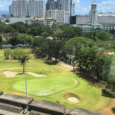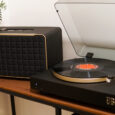These days, with our camera phones, social media, and all the easily accessible platforms for sharing content, anyone can simply write about their travel experiences. And anyone with access to the internet can consume these articles. And anyone who has the desire to can easily pitch their stories to travel websites and magazines so long as you know where to send them.
Well, it’s true. Everyone can write. But not everyone can write well.
So what separates a well-written travel piece from the rest? How can you share your travel experience in both an engaging and informative way? How can you be taken as a serious travel writer?
As a travel writer in the young stages of her career, these were the same questions I had in my mind. I’ve been published in quite a few travel websites and magazines, but I still am eager to learn. There is still so much to learn. There is always room for improvement, after all.
So last week, I attended “Travel the Write Way” by Writer’s Block Philippines, a travel writing workshop by two seasoned writers and editors, Ana Santos and Nikka Sarthou-Lainez. Grid Magazine’s Features Editor, Fruhlein Econar, was also there as a guest speaker. All in all, the workshop answered to one simple premise: What makes a good travel story?
READ: The Important Things Backpacking Solo Has Taught Me

5. Show, don’t tell.
“Don’t tell me about your trip,” Ana said as she started her talk. “Show me. Take me there.”
Although while it’s important to be simultaneously informative, travel writing is, first and foremost, story telling. As a writer, you are narrating an experience—not just dumping information and details about places in an article. It’s not just a retelling of what you did or where you went. It’s a story. And as with the best stories, make your piece come alive with descriptions and metaphors and the little poetries in places and in people that can’t easily be seen. That most people easily miss.
From my experience, I can attest that the most effective pieces of writing are the ones that evoke a feeling from your readers. Does it make them excited? Nostalgic? Happy? Make your readers feel as if they were there traveling with you, and not just listening to what happened to you. Take them with you.

4. Use your senses.
How do you show, not tell? By using your senses. See, hear, smell, taste, feel. Observe everything deeply. And when you write, describe, describe, describe. For example, let’s talk about the experience of walking the streets of Bangkok at night. Instead of just saying, “the streets are busy at night and there were many food stalls on the sidewalk,” I can improve the sentence by using my senses to describe the scenario. Then perhaps we could say, “at night, Bangkok comes alive with gleaming lights from the businesses lining the streets. The aroma of freshly cooked pad thais and green curries hover in the air, as hungry travelers and locals flood the food stalls on the sidewalk for their dinner.”
But here’s the thing: according to Ana, avoid overdoing it. A travel piece overflowing with flowery, creative descriptions can be just as boring as if the article had none. This can make the piece sound too wordy. No one likes that. Learn to find the balance.

3. Add in details.
Think about how you would describe a place to a blind person, we were told at the workshop. This is a good thought to have while writing your travel piece. So write the details. Write the important details. Plus, heard an interesting anecdote or quote from the place you traveled? Great. Include that in your story, too.
Fruhlein Econar of Grid Magazine told us about her writing process and finding a good story, and she said that she often finds it in people. The locals. They are the people who know their place best, after all. So immerse yourself. Be the friendliest version of you you can ever be. Ask questions. Be ever curious. And listen to what they have to say.
But, at the end of the day, don’t forget to be a responsible writer. Meaning do your own research, especially on “facts”. You don’t know which details you gather are true or not.
2. Find a unique angle to your story.
In ways both big and small, strive to come up with something different. Do avoid cliches. Avoid cliches when describing something (like “breathtaking sunset”—how many times has that been used?) and avoid cliche story angles, too. I’m pretty sure there’s more to Baler than surfing stories, right?
How to find a unique story angle? This is where number 3 comes in again—the details. Often, I find that the best stories lie in the details. Sometimes you find the story from just a sentence you heard from a local, from a quiet house, or from a man selling peanuts by the beach (a wonderful story written and shared by one of my classmates at the workshop).
I have to be honest, though. Finding a good story is just like hunting for gold you’re not even sure is there. But the best stories often come up when and where you least expect it, so keep an open mind and heart. This way, you don’t have to drive yourself crazy looking for that angle. Keep yourself open and you don’t have to find the story. The story will find you.
1. Write, write, write.
Simple—you cannot be a writer if you don’t write. I know it can be scary to start sometimes, and we writers often criticize our work worse than anyone else will ever do, but just start. Practice, practice, practice. Write, write, write.
–
It felt nice being in a room surrounded by travelers and writers like me at Writer’s Block’s workshop. I guess aside from all the things we learned that afternoon from the speakers, it was the learning from one another and hearing each other’s little pieces of stories from the road I also enjoyed. There was a sense of belonging there. After all, we were there to foster something we believed in. We were unified by our same love for travel writing.
Ready to hone your writing skills? Writer’s Block Philippines conducts workshops on writing regularly. Follow them on social media to stay updated. Details below.
Writer’s Block Philippines
www.writersblockphilippines.com
www.facebook.com/WritersBlockPHL
writersblock.ph@gmail.com
0917 397 9927







